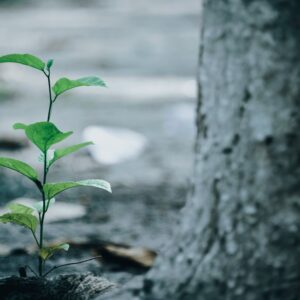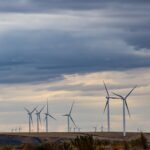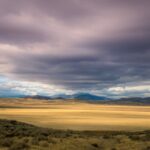Local non-profit civic organization
7 important arguments for environmental protection

Nothing lasts forever. Landscapes disappear, populations die out. It’s the natural course of things. Why try to protect anyone? The strongest survive, the weakest die–the law of nature. Environmentalists are faced with this kind of reasoning time and time again. So in this article we want to present a number of convincing arguments as to why conservation and the promotion of sustainable development are important in spite of all the arguments of the skeptics.
Environmental protection creates jobs and stimulates the economy
Thousands of people work in conservation around the world. It encompasses many sectors, from organic farming to generating energy from wind, water, solar and biofuels. From inspecting protected areas to setting up hiking trails in national parks.
Environmental protection stimulates scientific research and technological innovation
Man has learned a lot from nature, and continues to learn. The idea for the first flying machine was inspired by watching birds fly. Tropical forests are a rich source of many medicines, including antibiotics or remedies for malaria. Lotus petals inspired the idea of making dirt-repellent surfaces and modern paints. Almost every animal and plant has its technical secrets, which scientists discover and inventors create know-how. In other words, humans peep from nature and copy. As ecosystems and wild species disappear, the basis for scientific research and technical improvements is sharply reduced.
Environmental protection prevents natural disasters
Nature seeks balance. So forests absorb CO2, grow and turn it into oxygen. This makes life possible and also slows down climate change. In addition, forests provoke rainfall and the circulation of water in nature, contributing to its purification and transformation into drinking water. In addition, forests and green spaces protect the soil from erosion and prevent landslides and avalanches. Destroying forests drastically changes the climate of entire regions and causes dehydration and desertification. Or, conversely, it can cause massive floods, resulting in the flooding of entire areas and the evacuation of hundreds of thousands of people. By treating ecosystems with care, such troubles can be avoided.
Environmental problems have no geographic or political boundaries and affect everyone
The term “climate refugees” has already entered the international lexicon. New Zealand was one of the first countries to officially welcome in its territory people from other regions affected by natural disasters caused by climate change. Further climate change could lead to tremendous not only economic but also political and economic disruption. Accordingly, the struggle to save nature also has no boundaries: people from all over the world work together to find solutions to ecological problems and to promote models of sustainable development, opening up new horizons for themselves.
Protecting the environment teaches us to take responsibility for ourselves and others
In the course of our daily lives we consume the world’s natural resources. For the production of fruit juices, meat, chocolate, palm oil and other products, entire forests, home to millions of living creatures, are cut down. The industrial cultivation of cotton leads to the disappearance of bodies of water and, again, accelerates climate change and the lives of many people in different countries. So we have to watch how much and what we buy and how the production of these goods affects the life of our planet, that is to take responsibility for our actions, because:
Protecting the environment is protecting people.
By protecting nature, we protect ourselves. Lack of natural resources causes economic crises, wars and epidemics. Even small changes in the ecosystem can lead to enormous disasters. For example, the death or decline in the population of bees will affect not only the production of honey, but also the entire system of food production, since bees pollinate 80% of useful and wild plants. No bees – no honey, no fruit, very few vegetables. This leads to hunger, disease, migration, political turmoil and wars.
Protecting the environment is about protecting people
By protecting nature, we protect ourselves. Lack of natural resources causes economic crises, wars and epidemics. Even small changes in the ecosystem can lead to great disasters. For example, the death or decline in the population of bees will affect not only the production of honey, but also the entire system of food production, since bees pollinate 80% of useful and wild plants. No bees – no honey, no fruit, very few vegetables. This leads to hunger, disease, migration, political turmoil and wars.
Involvement in environmental protection is a source of joy
We study nature, admire it, ride bicycles or hike, swim in rivers and lakes. We meet like-minded people. Many tourist regions lure guests, promising to show them wild, untouched nature. Both children and adults love to watch animals, birds or fish. Any local successes – eliminating landfills, saving endangered populations, creating nature reserves – become a cause for global joy and inspire all other members of the environmental movement.
We humans are part of nature and its cycles. Even if we think that “man has explored and conquered nature,” we are highly dependent on it. Our impact on ecosystems has notable consequences for our daily lives. But they can be predicted and avoided if we think with our heads and act carefully. But it is also possible to promote positive change. Even small things can improve the state of nature and our life on the planet.



